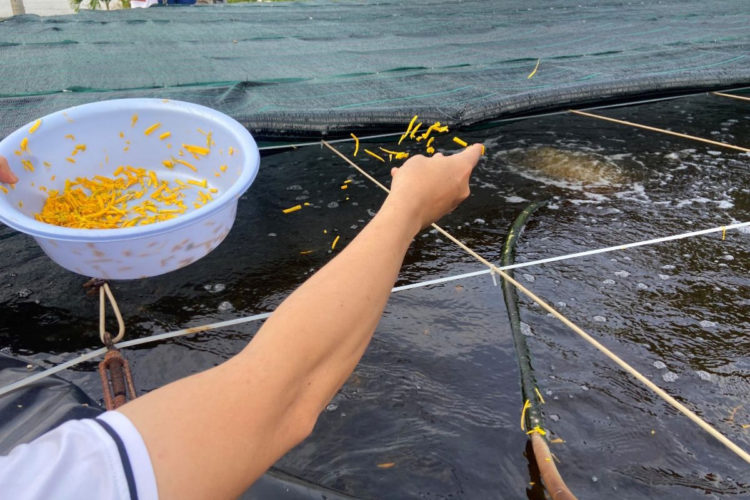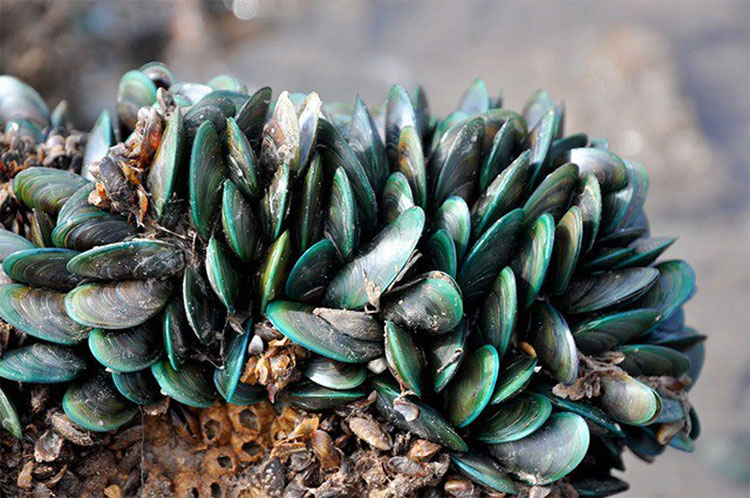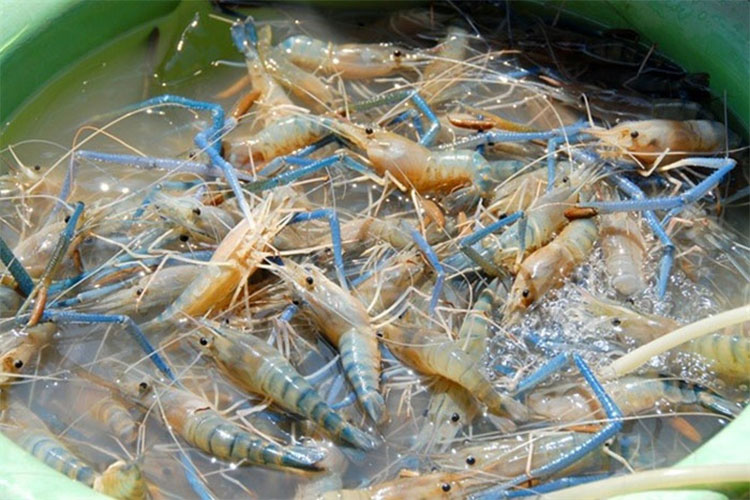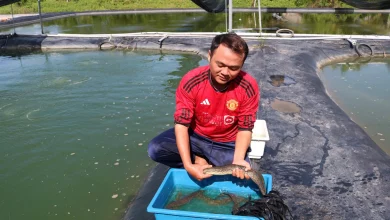Can Tho University develops shrimp farming techniques
Recently, Can Tho University collaborated with representatives from the German International Cooperation Organization (GIZ) to discuss the results of their previous partnership and to plan further cooperation focused on climate-adaptive shrimp farming. This collaboration has led to significant advancements in shrimp farming techniques at Can Tho University.
Through various cooperative projects with GIZ, particularly in the super-intensive shrimp farming model within a recirculating aquaculture system (RAS) and the shrimp-rice model, Can Tho University and local areas have achieved numerous positive outcomes. These projects have produced innovative training programs for undergraduate and graduate students, published scientific papers both domestically and internationally, and developed numerous demonstration models for training technicians, farmers, and businesses, laying the foundation for scaling these models in practical production.
With GIZ’s support, Can Tho University launched training courses titled “Professional Shrimp Farmers” funded by the CSIRO (Australia), which began in the 2023-2026 phase under the project “Activating Innovation for Inclusive and Sustainable Development Impact Pathways.” From May 21-23, 2024, the first training course was held for 32 technicians, farmers, cooperative members, and businesses from Ca Mau province at Can Tho University. Over three days, participants were introduced to 12 topics and had the opportunity to visit and experience high-tech shrimp farming models and laboratories at Can Tho University. This iteration of the program included updated information, new results, and additional contemporary topics.
 Photo: Tepbac
Photo: Tepbac
Previously, in 2022-2023, Can Tho University conducted training courses titled “Professional Shrimp Farmers” aimed at promoting innovation and sustainable development in the shrimp industry, also funded by CSIRO. These courses were part of the “Building Innovation Groups in Aquaculture in the Mekong Delta” project. Training sessions held on September 12-14, 2023, and December 29-31, 2023, incorporated new and important issues to provide comprehensive skills for shrimp farmers. Each course discussed 10 topics ranging from high-tech shrimp farming principles and techniques, environmentally friendly practices, climate change adaptation, carbon emission reduction, safety and sustainability, to green energy in aquaculture. In addition to theoretical lessons, participants visited specialized aquaculture laboratories and experimental farms, especially the super-intensive shrimp farming system using the CTU-RAS recirculating technology at Can Tho University, and local high-tech shrimp farming models.
The CTU-RAS technology (super-intensive whiteleg shrimp farming in a recirculating system combined with multi-species) developed by Can Tho University was researched and developed at an experimental farm in Vinh Chau town, Soc Trang province, and has been registered for intellectual property rights. This model was implemented on a 1-hectare area over 1.5 years with 5 shrimp farming cycles. The recirculating system included 8 farming ponds and 8 treatment ponds, with a stocking density of 300-350 shrimp per square meter, a survival rate of over 85% per cycle, and a yield of 35-55 tons per hectare per cycle. Key advancements of this model, being applied for commercial shrimp farming for the first time, include a closed recirculating system with multi-species biological filtration and motion-based biofiltration media; supplementary feeding of shrimp with pumpkin to replace part of the industrial feed.
This approach resulted in a very stable water environment, reduced the use of microbiological products, minerals, and chemicals, minimized water usage, completely reused water, and reduced waste discharge. The natural microorganisms ensured biosecurity, reduced feed conversion ratio (FCR), and enhanced the natural flavor, color, and quality of the shrimp. There was no need to add minerals or microbiological products to the feed, and no antibiotics were used, ensuring clean and safe products. The use of pumpkin in shrimp feed also played a significant role in the development and consumption of agricultural products.
Can Tho University also conducted research on “Application of Biofloc Technology in Whiteleg Shrimp Seed Production and Quality Enhancement” with positive results, which has been disseminated to hatcheries, shrimp farming cooperatives, and households in Ca Mau, Soc Trang, and Kien Giang provinces. This technology, developed over five years through various projects, is a new technology with many advantages in shrimp seed production and nursery farming, especially in not using antibiotics, enhancing biosecurity, and providing natural feed for shrimp. The technology has been applied in high-quality shrimp seed production at Can Tho University, serving production needs.
Regarding the shrimp-rice model in the Mekong Delta, Can Tho University implemented the “Mekong Shrimp Innovation – MAIC” project funded by CSIRO, which helped the Tri Luc Cooperative in Thoi Binh district (Ca Mau) achieve ASC certification. This shrimp-rice model has opened up technical issues for sustainable development in the context of climate change, overcoming challenges with an emphasis on innovation. The results have been introduced to businesses and shrimp farmers in Tra Vinh, Soc Trang, Bac Lieu, Ca Mau, and Kien Giang provinces.
VFM





